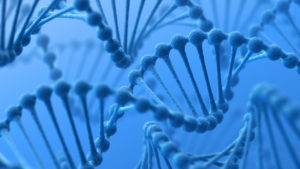
Hematologic Oncology and Blood Cancer
Hematologic oncology is a medical specialty concerned with treating cancers of the blood and blood-forming tissues. Specialists in this field help patients with a variety
HIPAA Alert: Potential Data Breach Learn More
Questions on Oncology, Hematology and/or Infusion Clinical Services due to COVID-19 Crisis – CALL 833-698-1623
Important Information for Our Patients Regarding the Coronavirus.
RCCA Providing Area Cancer Patients with Access to Care During Coronavirus Outbreak
RCCA Offering Patients Virtual Visits During Coronavirus Pandemic
Before and after certain cancer treatments, your oncologist and cancer care team at Regional Cancer Care Associates may ask you to follow a specific diet, such as a low-residue (fiber-restricted) diet, or to eat from a specific list of foods. Adhering to these diets helps ease your healing process, as it may be more difficult to digest certain foods after a treatment.
In addition, colon cancer and colon cancer treatment can affect how the body absorbs nutrients and fluids, making it more difficult for patients to get the vital building blocks for a healthy immune system that can help fight off the cancer. That’s why it’s especially important for patients with colon cancer and survivors of colon cancer to eat nutrient-rich foods and avoid empty calories. Here’s a look at some of the general food guidelines that can help your body stay nourished while battling colon cancer.
Patients with colon cancer should eat small meals several times a day. This can help ease digestion and help manage some of the side effects of colon cancer treatment, such as diarrhea, acid reflux, and appetite changes. Eating smaller meals more frequently can also aid with nutrient absorption.
Your body needs ample water in order to work efficiently. Drinking plenty of water, sucking on ice chips, and eating foods high in water content can also help manage certain side effects, including constipation and fatigue. On a related note, you’ll want to avoid alcohol and caffeine, since both can lead to dehydration and may interfere with certain medications.
Avoiding sugar and processed foods is good advice for anyone, since consuming too much sugar on a regular basis has been linked to diabetes, heart disease, obesity, depression, and the development of some cancers. But it is critical for patients with colon cancer to avoid refined carbs and other highly processed foods, as they don’t have the same nutritional value as plant-based foods and lean proteins. When you’re fighting colon cancer, you need the vitamins and minerals found in healthy foods to give your immune system a boost.
Research has also shown that consistently high levels of insulin play a role in colon cancer recurrence, and that people with diabetes are at greater risk of developing colon cancer.
When your body is undergoing cancer treatments, such as radiation therapy and chemotherapy, it’s important to eat a diet rich in protein because it helps repair your cells and tissue. Because digestion can be more difficult for patients with colon cancer, it’s best to stick to lean meats like chicken, as well as fish, eggs, and low-processed dairy products.
Your diet may need to change throughout your battle with colon cancer, depending on the type of treatment you’re receiving and other factors, so it’s important to talk with your oncologist and primary care physician to develop new plans as things change. It may be beneficial to have your oncologist refer you to a dietician, who can help you make healthy food choices. At Regional Cancer Care Associates, our goal is to give you personalized, compassionate care that’s tailored to fight your unique cancer. Contact us today to set up an appointment at one of our convenient locations throughout Connecticut, Maryland, and New Jersey.
For more information or to schedule an appointment,
call 844-346-7222. You can also schedule an appointment by calling the RCCA location nearest you.

Hematologic oncology is a medical specialty concerned with treating cancers of the blood and blood-forming tissues. Specialists in this field help patients with a variety

Cancer can affect anyone from any background. However, some racial and ethnic groups have higher rates of certain kinds of cancer. Regional Cancer Care Associates

A look at who is a candidate for genetic screening, and how that screening should be performed.

Regional Cancer Care Associates is one of fewer than 200 medical practices in the country selected to participate in the Oncology Care Model (OCM); a recent Medicare initiative aimed at improving care coordination and access to and quality of care for Medicare beneficiaries undergoing chemotherapy treatment.